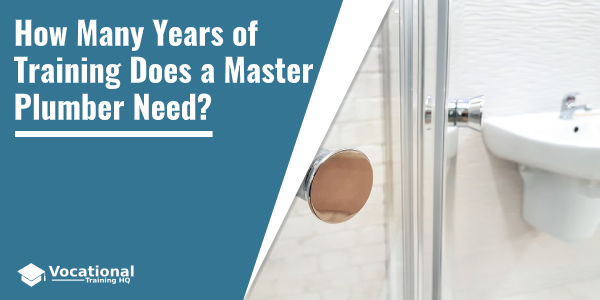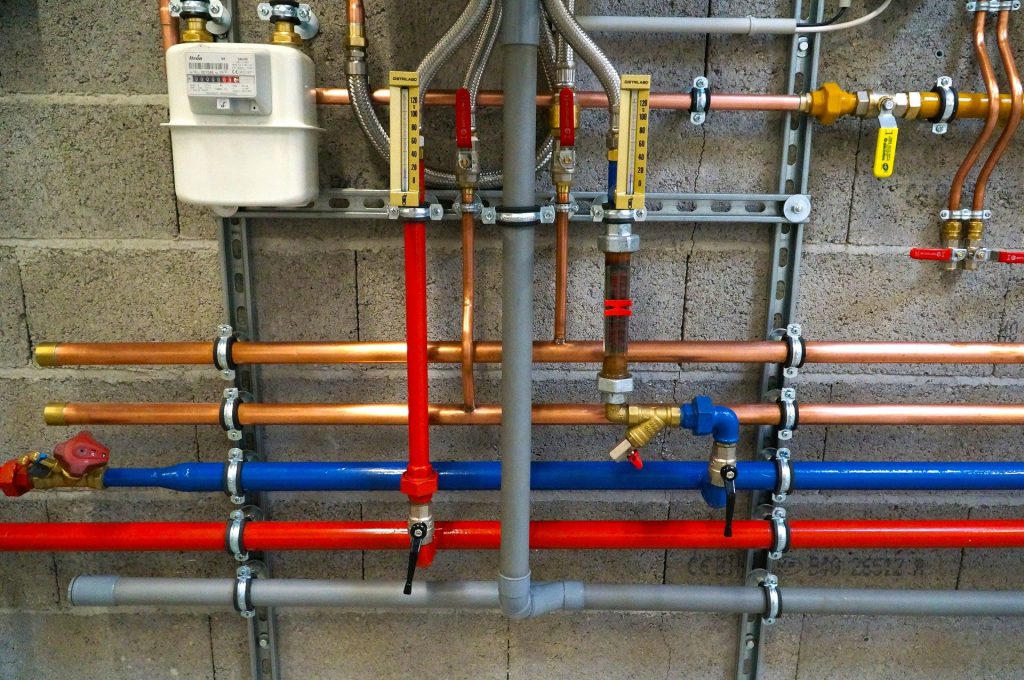Every new building needs an efficient piping system and all piping systems need maintenance work from time to time.
For this reason, good plumbers will continue to be in-demand in the future.
Although plumbers can practice for their entire career at the journeyman level, becoming a master plumber may give you better job prospects and more independence.
As a master plumber, you can also start your own plumbing business.
Before achieving this status you will need many years of training and work experience and you will have to pass a licensing and a certification exam.
Experience and training requirements vary by state, but it will typically take between 7-10 years of training before being ready for the master plumber certification exam.
Master Plumber Job Description
As a master plumber, you will spend most of your day in the field, where you will have to crawl into tight spaces, work from a horizontal position to make sure you reach the pipe or even hang upside down.
You won’t have a fixed schedule and you may have to be on call 24 hrs per day.
Many master plumbers own their own business and may have employees who work alongside them.
Although you may have to work from early morning to late evening, the good news is that this is not a monotonous job, as each case is another puzzle to solve.
Master Plumber Education Requirements
If you want to become a Master Plumber, the first step is to finish high school.
Upon graduation, you are ready to enroll in a post-secondary program at a trade school or an apprenticeship.
Before starting the apprenticeship, you may have to take some classes at a vocational school or community college.
Pre-apprenticeship programs typically cover topics such as the design of water, waste, and vent systems, plumbing math, building codes, installation methodology, residential repair, and blueprint reading.
These classes typically take around two years and can be completed individually or as part of an associate degree program.
After completing this classroom training part, you are ready to begin the apprenticeship.
Although state regulations vary, you should expect to spend between 4 and 5 years as an apprentice.
During this time you will work alongside an experienced plumber and you will earn a salary.
After completing the apprenticeship, you are ready to apply for a state license and if you pass the licensing examination you are qualified to start work as a journeyman plumber.
Many plumbers practice at a journeyman level throughout their careers but after earning a few years of work experience you can apply for a master plumber license.
This license can be earned if you pass a certification test that covers federal and state building codes and practical skills.
You will also have to complete continuing education classes to maintain your plumbing license.
Master Plumber Salary
According to the Bureau of Labor Statistics, the median annual wage for plumbers, pipefitters, and steamfitters was $55,160 as of May 2019.
Salaries vary depending on the experience level and the level of certification; master plumbers typically have better chances of earning higher-than-average salaries.
This profession is expected to grow 4 percent from 2019 to 2029, according to the Bureau of Labor Statistics.
Job prospects depend on the local economy and the level of construction work but experienced plumbers who know how to use advanced building information modeling software are expected to have good job prospects.
Read the full guide: How to Become a Plumber


